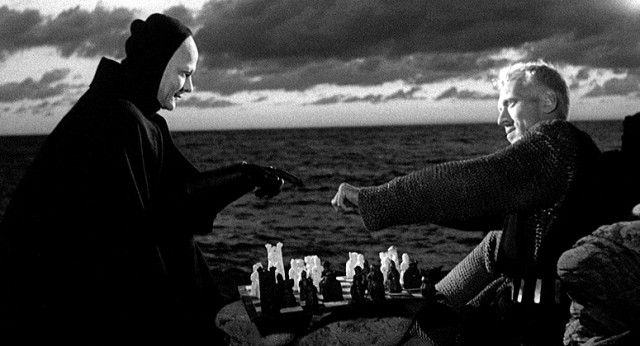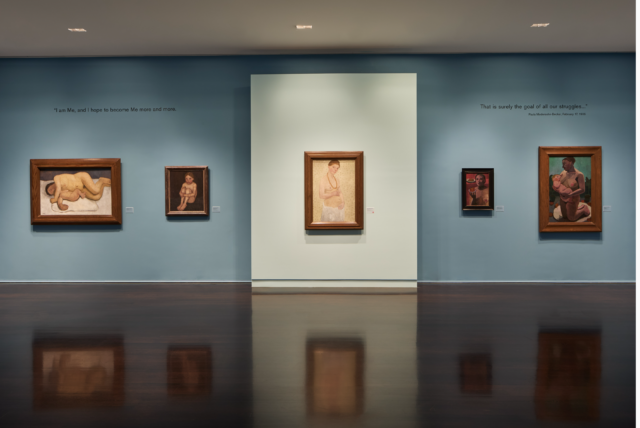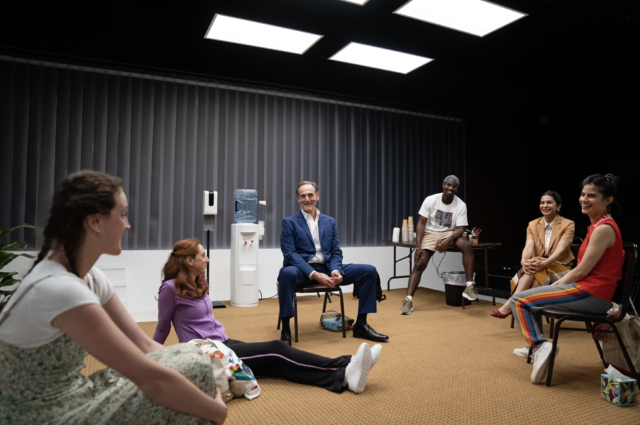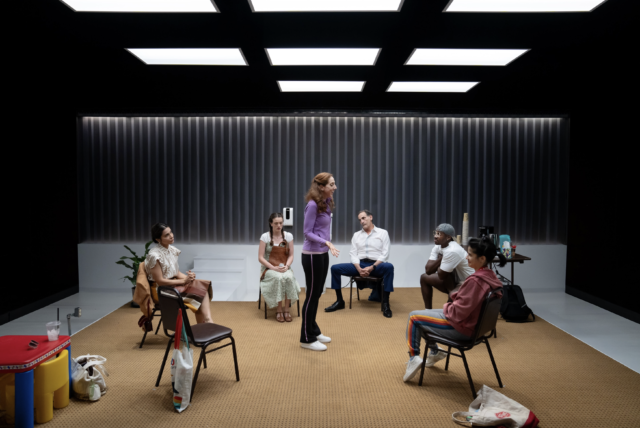
Edra Soto’s Graft will tantalize Central Park visitors through next August (photo by twi-ny/mdr)
GRAFT
Doris C. Freedman Plaza, Central Park
Sixtieth St. at Fifth Ave.
Opening: Wednesday, September 4, 6:00
September 5 – August 24, free
www.publicartfund.org
edrasoto.com
online slideshow
During the Olympics, I was surprised to see Puerto Rico taking on the United States in men’s basketball, since Puerto Rico is a US territory and all Puerto Ricans are American citizens. For some reason, I hadn’t realized that Puerto Rico has been competing as its own entity in the Summer Olympics since 1948 and in the Winter Olympics since 1984. Unfortunately, when I think of Puerto Rico, one of the things that first comes to mind is Donald Trump throwing rolls of paper towels at Puerto Ricans in the aftermath of the destruction wrought by Hurricane Maria in 2017.
That separation between Puerto Rico and the United States is forefront in Edra Soto’s new Public Art Fund commission, Graft, a red terrazzo concrete and corten steel barrier at the Scholars Gate entrance to Central Park. Soto, who was born and raised in Puerto Rico and has lived and worked in Chicago since 1998, has placed architectural interventions at several previous indoor and outdoor locations. This latest iteration, situated on Doris C. Freedman Plaza, looks like a wrought-iron fence that can let people in — and keep them out, referencing immigration, fear of crime, and the prison system.
On the park side of the physical boundary, there are three sets of tables and chairs where people can grab a seat but have no privacy, as they can be seen through the grating, which features an intricate design inspired by rejas, fences that are incorporated into middle-class Puerto Rican houses, based on Caribbean palm leaves and Yoruba symbols from West Africa.
“The rejas make perfect sense to me, as an expression of self. They exist and are understood as a formality in art, but they can live in invisibility because they are not meant to be contemplative,” Soto said in a statement. “As decorative patterns from a common house, they are meant simply to be pleasant enough to be a part of living spaces.”
Graft feels right at home in New York City, with its proud past of rampant corruption and large Puerto Rican communities; the sculpture resides among tall buildings and large, lovely trees, where people from all around the world will pass by, while nearby is Augustus Saint-Gaudens’s golden statue of Civil War general William Tecumseh Sherman astride his horse, Ontario, led by Victory. “Fear is the beginning of wisdom,” Sherman, who was born in Ohio and died in New York City, once said.
Fear is often the reason why walls are built. The inclusion of floral motifs also may be referencing botanical grafts, the process of cutting a branch of one plant and joining it to the stem of another so that they grow together, generating a more robust and beautiful tree or shrub.
“Graft at Central Park invites viewers to contemplate the resilience of cultural identity and the diasporic experiences which have infused New York City’s history and present day,” Public Art Fund senior curator Melanie Kress explained in a statement. “Soto’s installation will encourage connection in a communal space where people can reflect on their shared histories and celebrate their diverse cultural heritage.”
The opening celebration takes place September 4 at 6:00 and is open to everyone; future programs will include dominoes tournaments held in conjunction with the Clemente Soto Velez Cultural and Educational Center, and the Public Art Fund usually hosts an artist talk about its commissions. No paper towels necessary.
[Mark Rifkin is a Brooklyn-born, Manhattan-based writer and editor; you can follow him on Substack here.]











